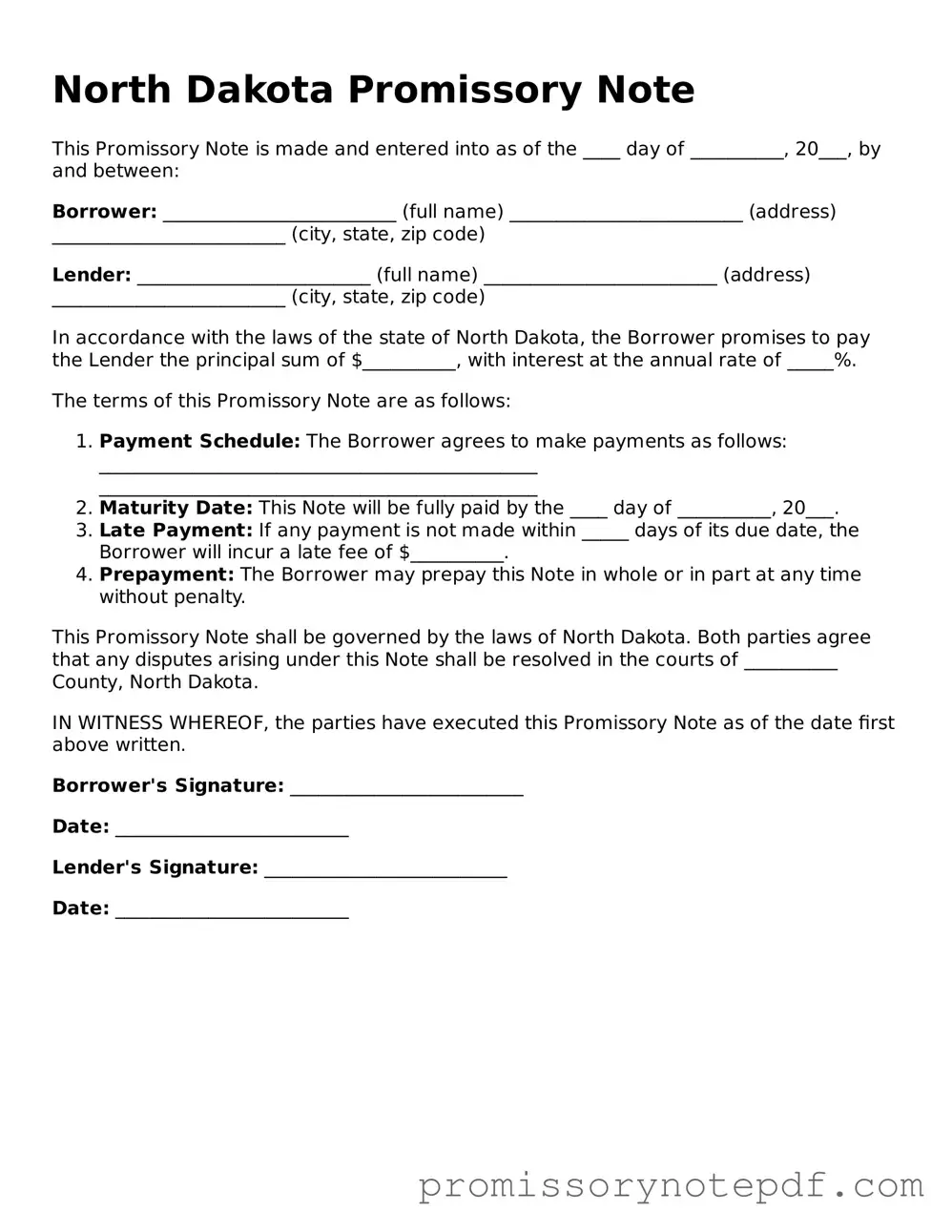Similar forms
The North Dakota Promissory Note form shares similarities with a Loan Agreement. Both documents outline the terms of a loan, including the amount borrowed, interest rates, and repayment schedules. A Loan Agreement typically includes more detailed provisions, such as default terms and covenants, but the core purpose remains the same: to document the borrower’s obligation to repay the lender. The clarity in both documents helps protect the rights of both parties involved in the transaction.
Another document that resembles the North Dakota Promissory Note is a Mortgage. While a Promissory Note primarily focuses on the borrower's promise to repay a loan, a Mortgage secures that promise with collateral, usually real estate. The Mortgage outlines the lender's rights in case of default, providing a layer of security for the lender. Both documents work together in real estate transactions, ensuring that the lender has recourse if the borrower fails to meet their obligations.
A Secured Loan Agreement is also similar to the North Dakota Promissory Note. This document specifies that the loan is backed by collateral, which can be personal property or assets. Like a Promissory Note, it details the loan amount, interest rate, and repayment terms. The main difference lies in the collateral aspect, which provides additional security for the lender. This helps ensure that the lender can recover their investment if the borrower defaults.
The North Dakota Promissory Note can be compared to a Demand Note as well. A Demand Note is a type of promissory note that requires repayment upon request rather than on a set schedule. While both documents serve the same fundamental purpose of documenting a loan, the Demand Note offers flexibility for the lender to request repayment at any time. This can create urgency for the borrower to manage their finances carefully.
Finally, a Personal Guarantee can be seen as related to the North Dakota Promissory Note. This document involves a third party who agrees to be responsible for the borrower's debt if the borrower defaults. While the Promissory Note outlines the borrower’s obligation, the Personal Guarantee provides an additional layer of security for the lender. It ensures that there is a backup source of repayment, which can be crucial in high-risk lending situations.
